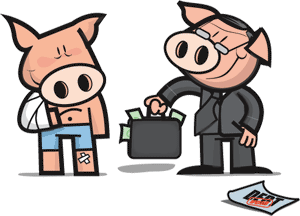 We get very used to buying our food in this country, from supermarkets and shops or even over the internet but this happens at a national level as well. If you want strawberries in January you can have them; we just import them from a country where they can be harvested in our winter.
We get very used to buying our food in this country, from supermarkets and shops or even over the internet but this happens at a national level as well. If you want strawberries in January you can have them; we just import them from a country where they can be harvested in our winter.
The problem comes for poorer countries that can’t afford to buy food on the international markets. This is an especially difficult problem if you can’t grow a lot of food of your own. a lot of desert countries in Africa cannot grow a lot of food but also can’t buy in food either. Where governments try to feed starving people they might borrow money and get into debt in order to try and feed their people. This then causes all sorts of problems as they cannot afford to pay back the money they borrow.
When you borrow money from someone it usually comes with a rate of ‘interest’ – that is the extra money you will have to pay  back on top of the sum you borrowed. If I borrow £1,000,000 from someone to buy wheat for the people in my country then I might end up having to pay back £1,100,000 which is hard when I didn’t have the £1,000,000 in the first place. Often these debts can get out of control.
back on top of the sum you borrowed. If I borrow £1,000,000 from someone to buy wheat for the people in my country then I might end up having to pay back £1,100,000 which is hard when I didn’t have the £1,000,000 in the first place. Often these debts can get out of control.
Chile, for example, borrowed several million from the U.S. following an earthquake forty years ago. They still have not fully paid off this debt!
A further problem here is linked to corruption. Some Governments, like that of Robert Mugabe in Zimbabwe, force farmers to grow CASH CROPS, that is crops to be sold abroad for profit on the world markets so they can line their own pockets rather than feeding their own people.
You must be logged in to post a comment.